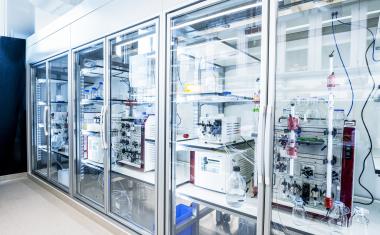SGS Life Science Services Doubles Mumbai Plant Size
Geneva, Switzerland-based SGS Life Science Services, a leading provider of pharmaceutical, clinical and bioanalytical contract solutions, has announced plans to more than double the size invest of its Mumbai, India, facility to 3,994 square meters.
The company said the expansion is being driven by increasing demand for Full Time Equivalent (FTE) activities for key pharmaceutical customers, as well as an increase in stability projects from both local operations of multinational companies and overseas organizations.
SGS' expanded laboratory at Mumbai facility, which is focused on stability studies and dedicated FTE models, will act as a dedicated cGMP pharmaceutical testing site. Due for completion and validation in Q2 2015, it will feature three new 100 cubic meter capacity stability chambers, HPLCs, dissolutions, Gas Chromatographs and additional general laboratory instruments.
Capacity at the site will rise from 423 cubic meters to 723 cubic meters, while the company said 39 new jobs "ultimately" will be added to the current 88 member workforce.
Paul House, managing director of SGS India, said the Mumbai laboratory will be the largest stability testing facility in the company's life science services network.


















